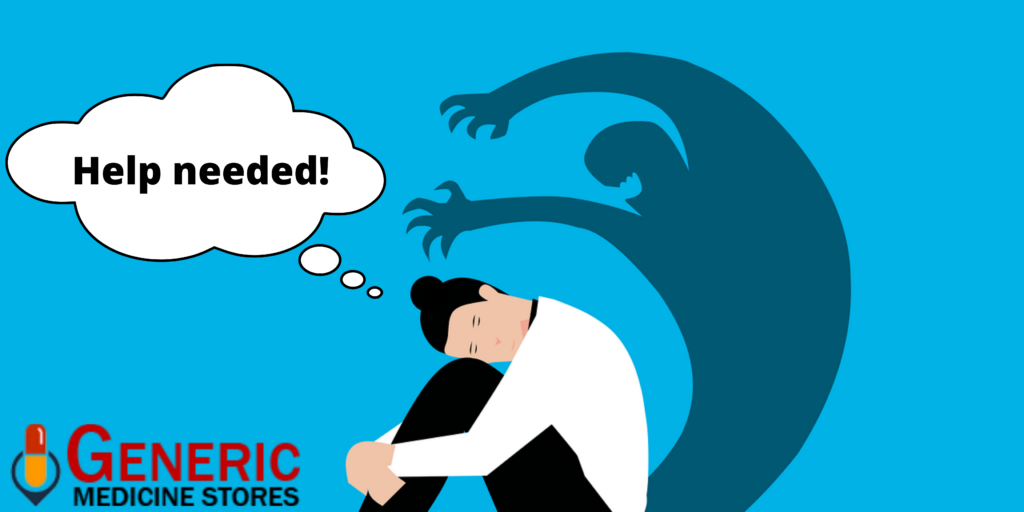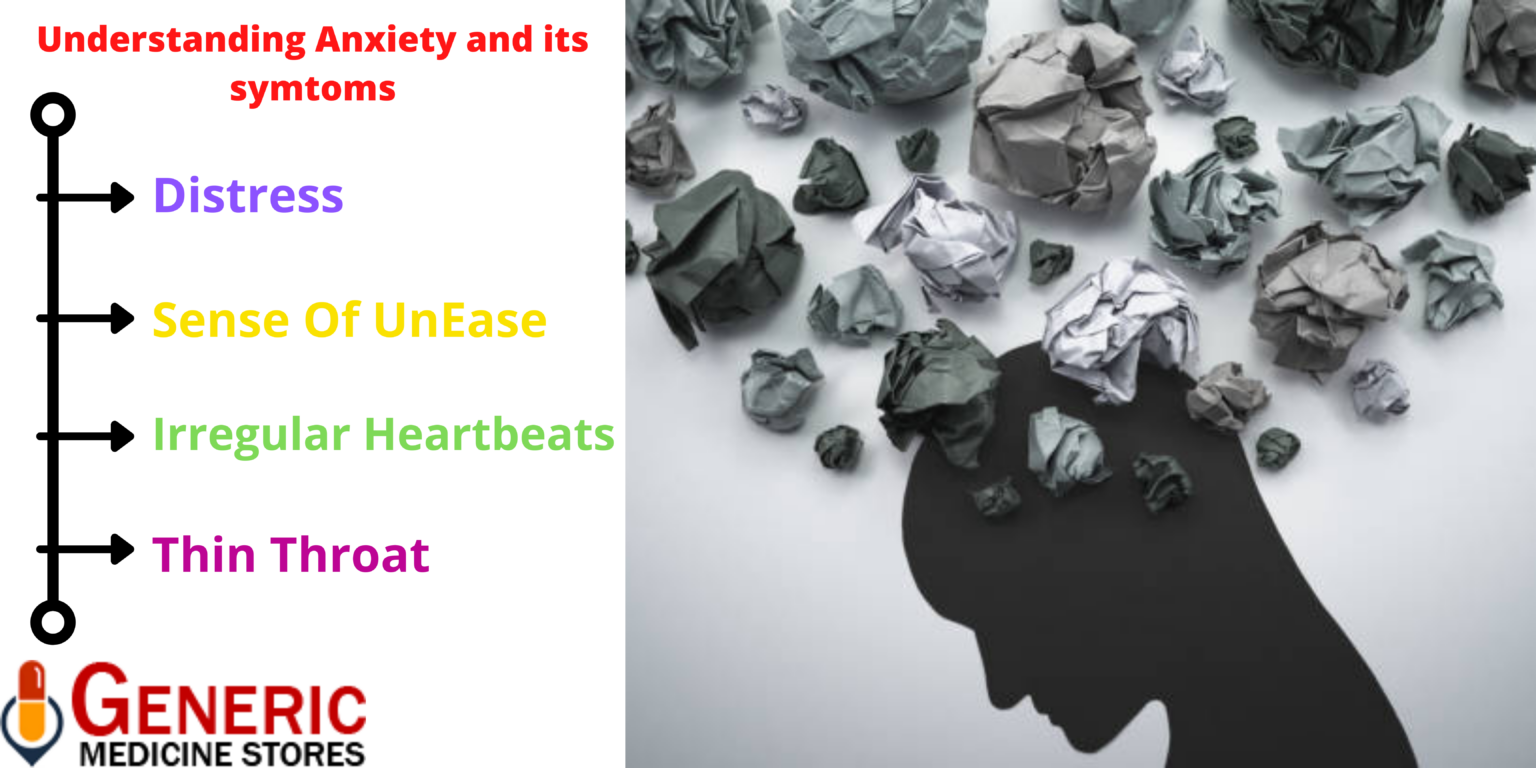What is an anxiety disorder?
Anxiety is a familiar feeling of anxiety, and it can be helpful in some circumstances. It can warn us of impending dangers and assist us in preparing and paying attention. Anxiety disorders are distinguished from normal feelings of apprehension or anxiety by the presence of great fear or anxiety. Anxiety diseases are the most prevalent type of mental illness, affecting nearly 30% of adults at a certain point in life. On the other hand, anxiety disorders are easy to treat, and various treatment options are available. Treatment enables the majority of people to live everyday, successful lives.
What are all the ordinary things about Anxiety disorders?
Anxiety is seen by muscle contractions and avoidance behavior in response to the relation to due consideration. Anxiety is an emotional reaction to an impending threat but is more associated with a flight- or- flight– either residing to fight or fleeing to avoid danger.
People suffering from anxiety disorders may prefer to avoid conditions that can cause or deteriorate their signs. Employment status, completing homework, and close connections can all suffer as a result. In general, for individual disorders to be given a diagnosis with an anxiety disorder, the fear or anxiety must satisfy the following criteria:
- Be well out of proportion to the actual or be improper for your age
- Impair your daily functioning
Anxiety disorders are classified into several types, such as generalized anxiety disorders, anxiety attacks, phobias, panic attacks, social anxiety, and psychiatric conditions.
What are the types of anxiety disorders?
Anxiety disorders are classified into several types:
This in general form– You experience heavy, irrational anxiety and stress for no apparent reason.
Anxiety disorders in social situations– This is also known as social phobia, and it occurs when you experience excessive worry and self-consciousness in social and performance problems. You are preoccupied with the possibility of being judged, embarrassed, or ridiculed by others.
A specific phobia– You are terrified of one particular object or situation, such as altitude or gliding. The fear extends beyond what is reasonable and may end up causing you to avert common issues.
Agoraphobia– You are terrified of being in a situation in which it appears challenging to flee or seek help in the case of an emergency. For example, you may experience panic or anxiety while flying, taking public transit, or waiting in line with an audience.
Anxiety from detachment– When a loved one departs, not only children experience fear or anxiety but also grownups. Separation anxiety disorder can affect anyone. If you do, you will feel very anxious or terrified when someone close to you leaves your vision. You’ll be constantly concerned that if something terrible will happen to your loved ones.
Mutism of choice– This is a form of social anxiety in which young children who usually talk with their family do not speak in public, such as at school.
Anxiety Disorders caused by medication- Some symptoms of anxiety disorders can be caused by illicit drugs or by withdrawal from several medications.
What are the symptoms of Anxiety Disorders?
The Following are some common symptoms:
- Distress, dread, and a sense of unease
- Dispair, ruin or hazard thoughts/ Sleeping difficulties
- Being unable to remain calm and still cold, tired, dizzy, or tingly hands or feet
- Breathlessness/ Inhaling quicker and much more quickly than usual (hyperventilation)/ Irregular heartbeats of the heart
- A thin throat/ Sickness
- Dizzy spells/ Starting to think about an issue over and over and being unable to stop (rumination)
- Incapability to focus/ Trying to dodge feared items or locations with zeal or obsessiveness

What are the treatment options for Anxiety disorders?
There are many other forms of exercise and actions that can help us deal with milder, more centered, or relatively short anxiety disorders, such as;
Learning how to manage strain can help limit the potential trigger points. Arrange any future timelines and increased pressure, make records to make challenging tasks more workable, and be dedicated to taking time off school or work.
Stress management: Straightforward activities will help alleviate both mental and physical symptoms of anxiety. Contemplation, breathing exercises, long baths, laying in pitch black, and yoga are examples of these techniques.
Exercise for replacing negative thoughts with more positive reviews include: Make a list of the negative thoughts that may be biking as a consequence of anxiousness and then draw up a list of favorable, lifelike feelings to start replacing them. Imagining yourself effective in facing and conquering a particular fear can also help if your anxiety symptoms are connected to one specific cause, such as an irrational fear.
Talk to people you know who are appreciative, such as a friend or relative. Solutions for support networks may also be readily accessible region and digitally.
Seeking professional help
Psychological counseling is a common way of treating anxiety. To treat anxiety disorder, cognitive-behavioral therapy (CBT), Psychotherapy, or a mixture of treatments may be used.
CBT
This type of psychotherapy seeks to identify and alter negative thought patterns that form the basis for anxiety and troubling feelings. CBT practitioners hope that by doing so, they will be able to limit cognitive distortions and change how people respond to situations or objects that cause anxiety.
Medication
There are a few types of drugs that can help with stress relief. Antidepressants, benzodiazepines, tricyclics, and beta-blockers are some medications that may help with some of the physical and mental diagnoses.
Avoidance
There are methods for lowering the risk of mental illnesses. Recollect that anxiety attacks are a normal part of everyday life and that having them does not confirm the presence of a mental disorder. To help alleviate anxious feelings, take the following steps:
- People suffering from anxiety disorders should avoid coffee, tea, soft drinks, and chocolate.
- Confirm with a local pharmacist and then use under (OTC) or natural supplements for any chemical compounds that may exacerbate anxiety.
- Preserve a nutritious diet.
- Maintain a consistent sleep schedule.
- Lay off alcohol, marijuana, and other addictive substances.

